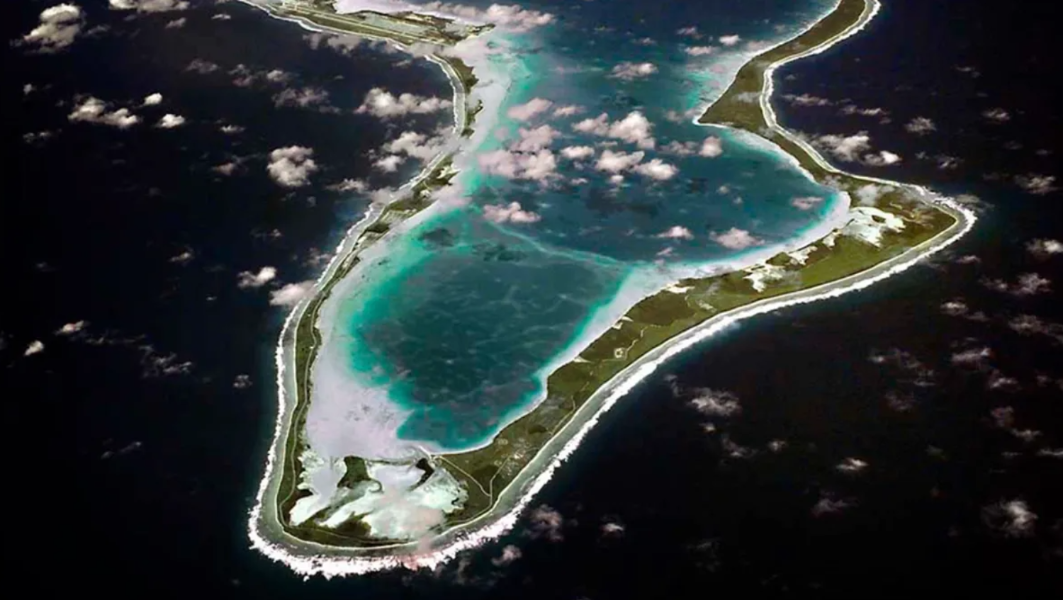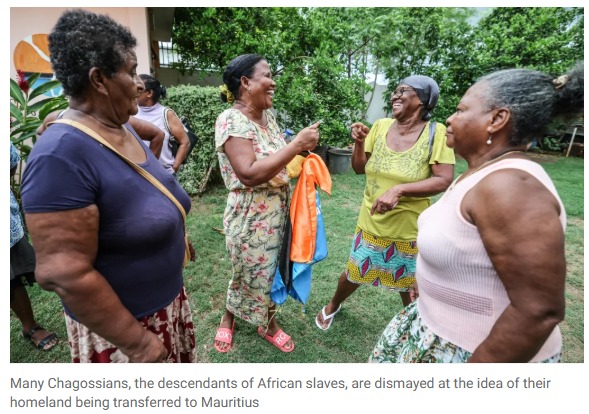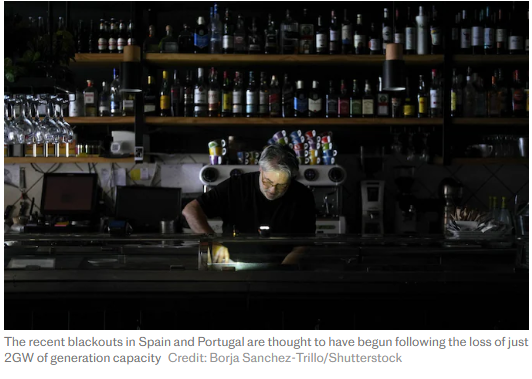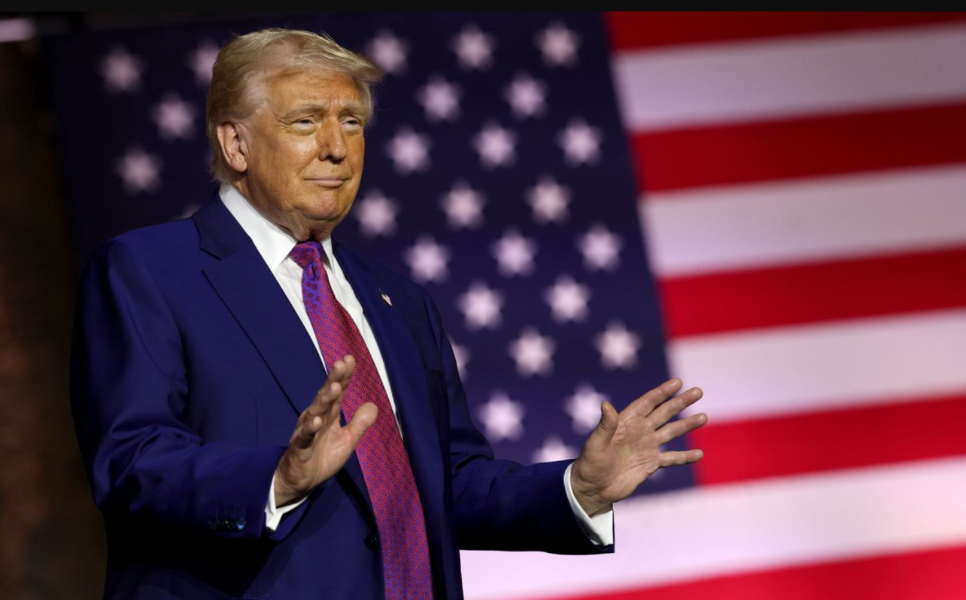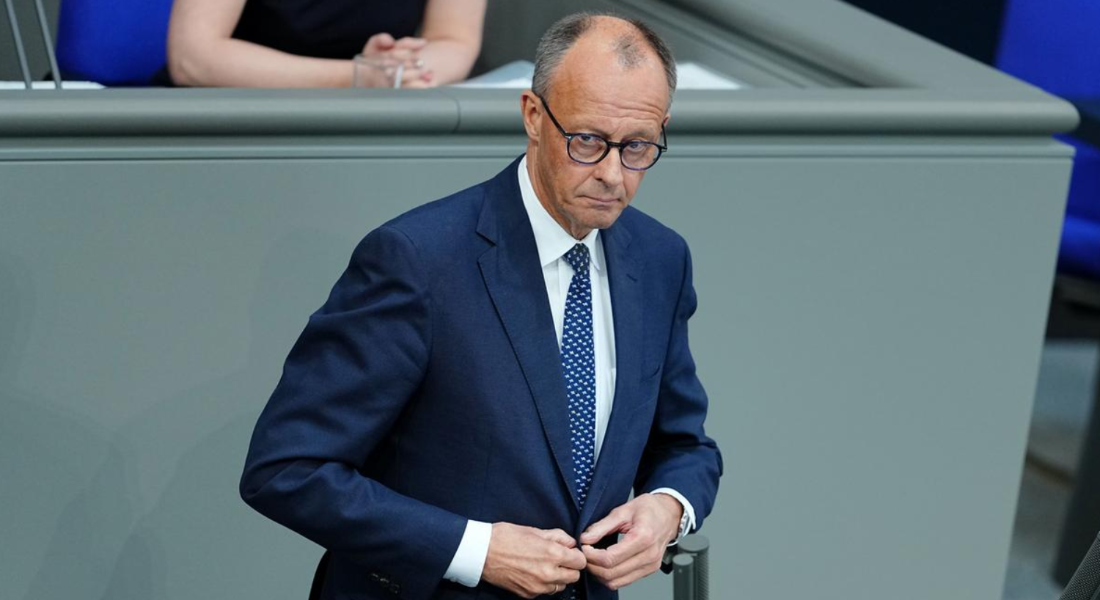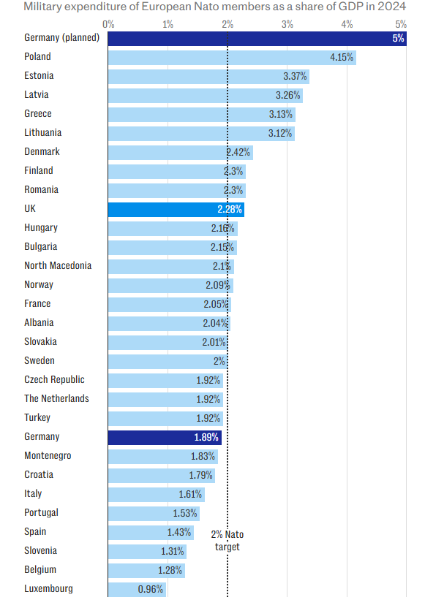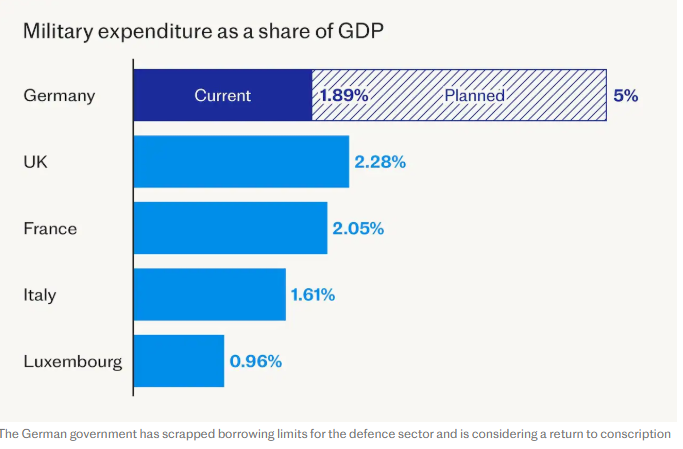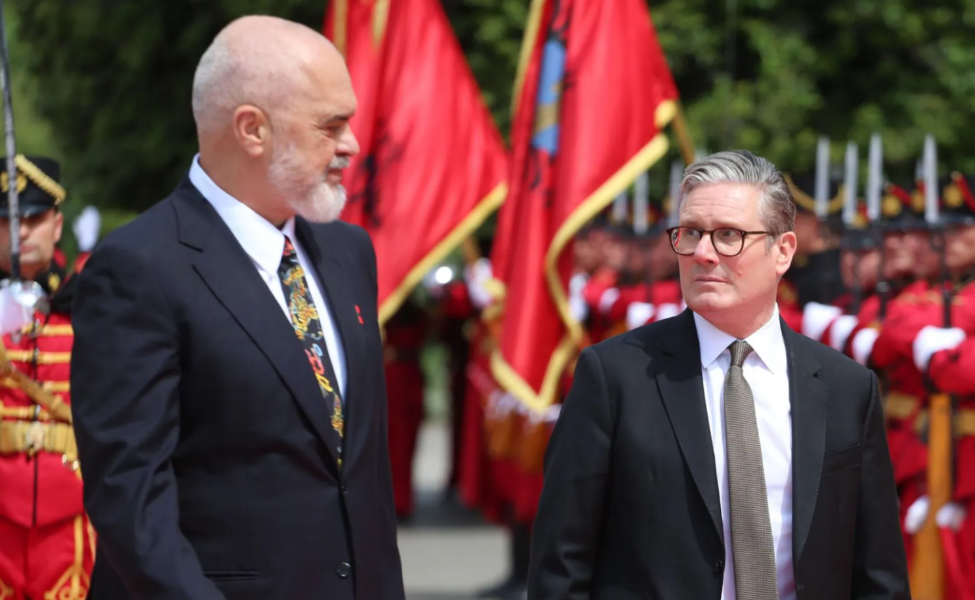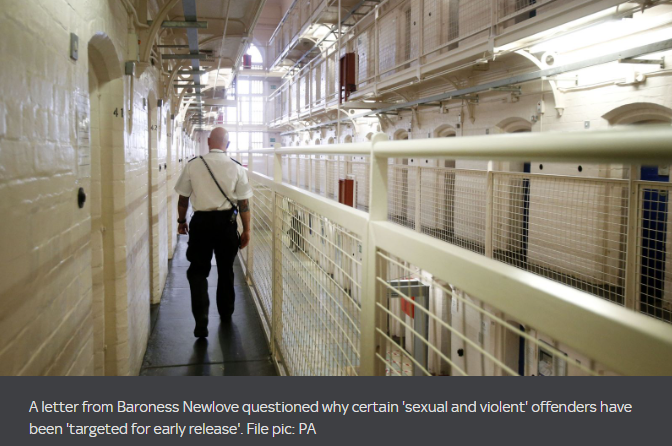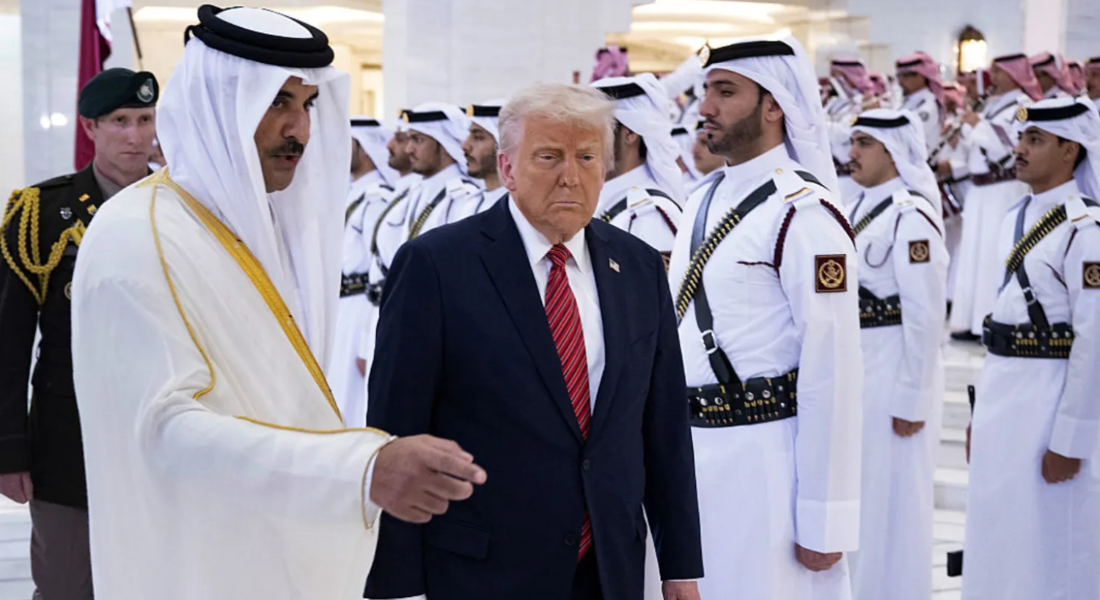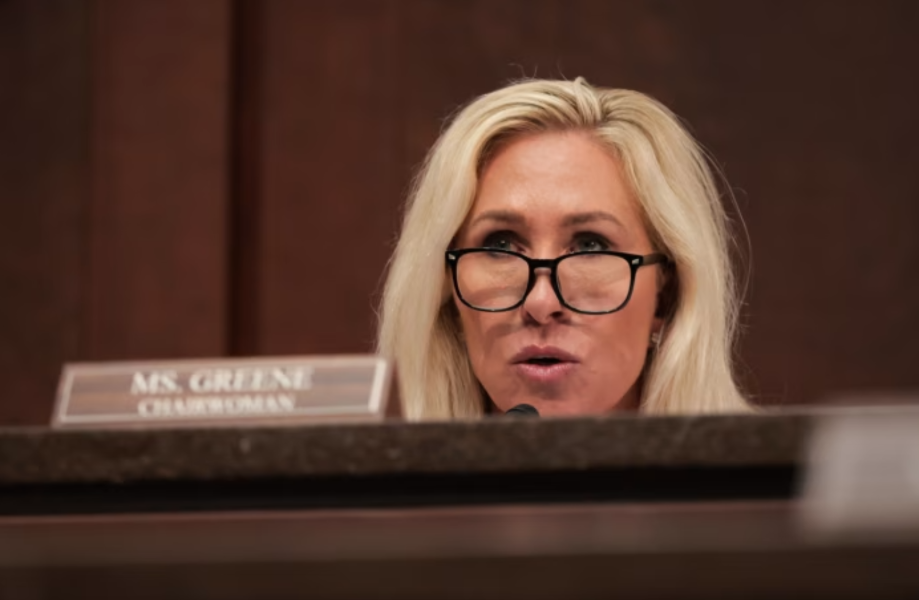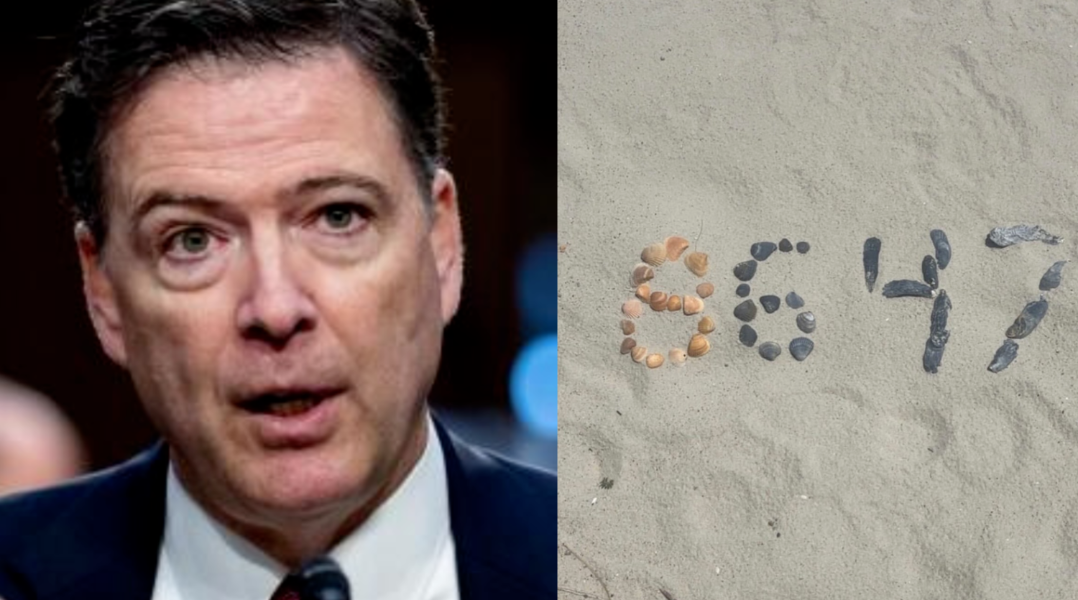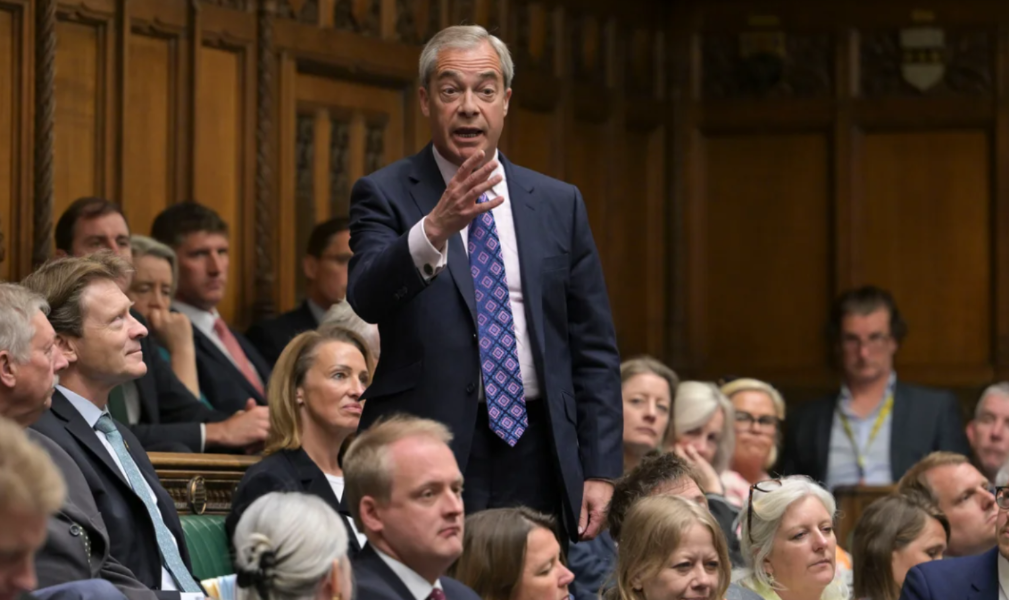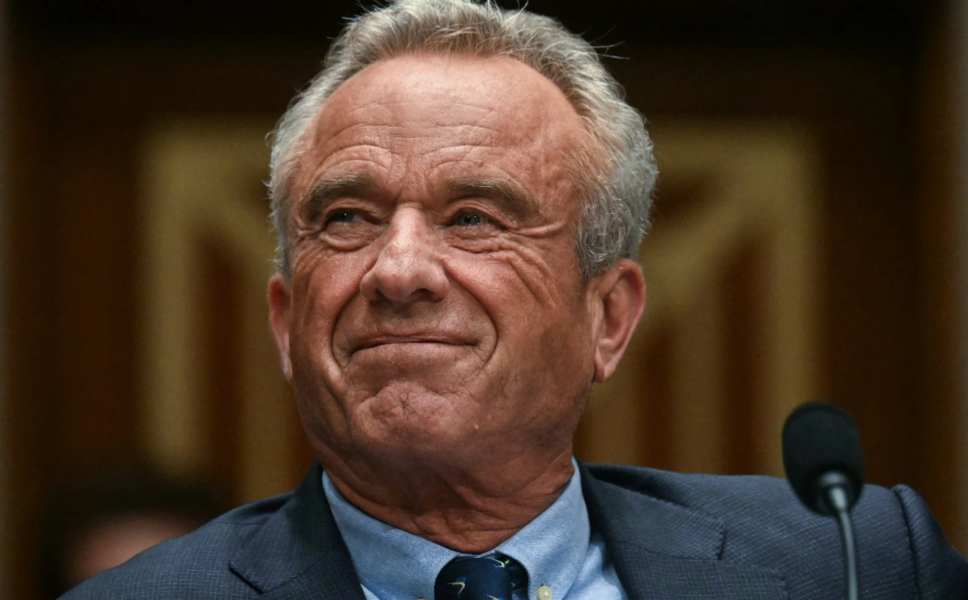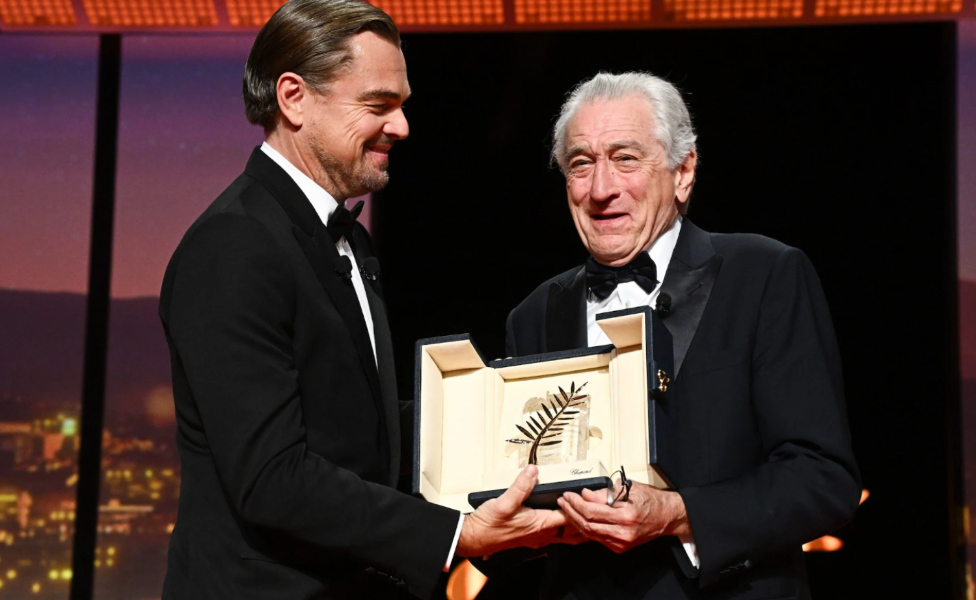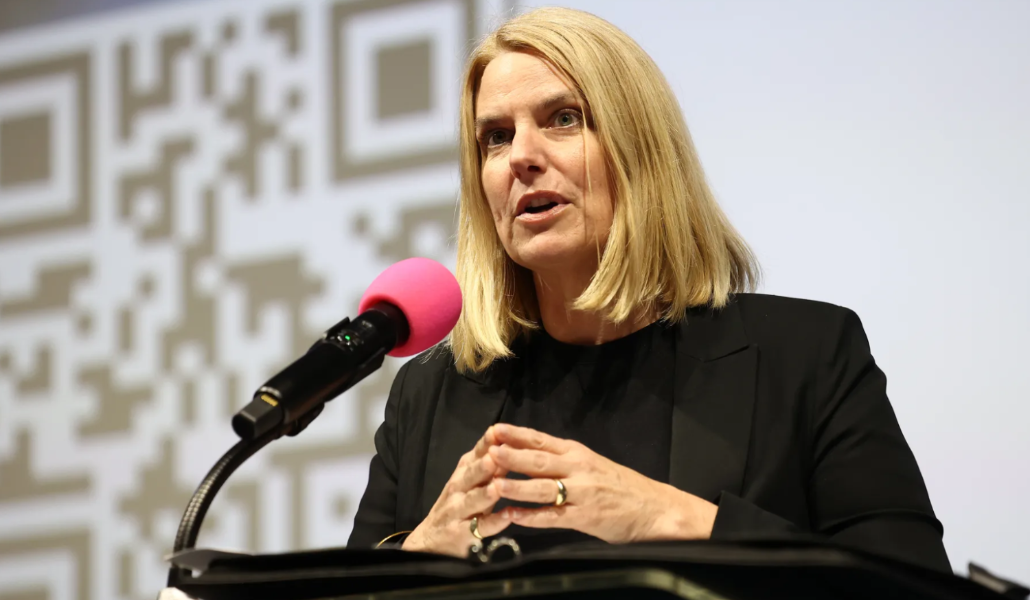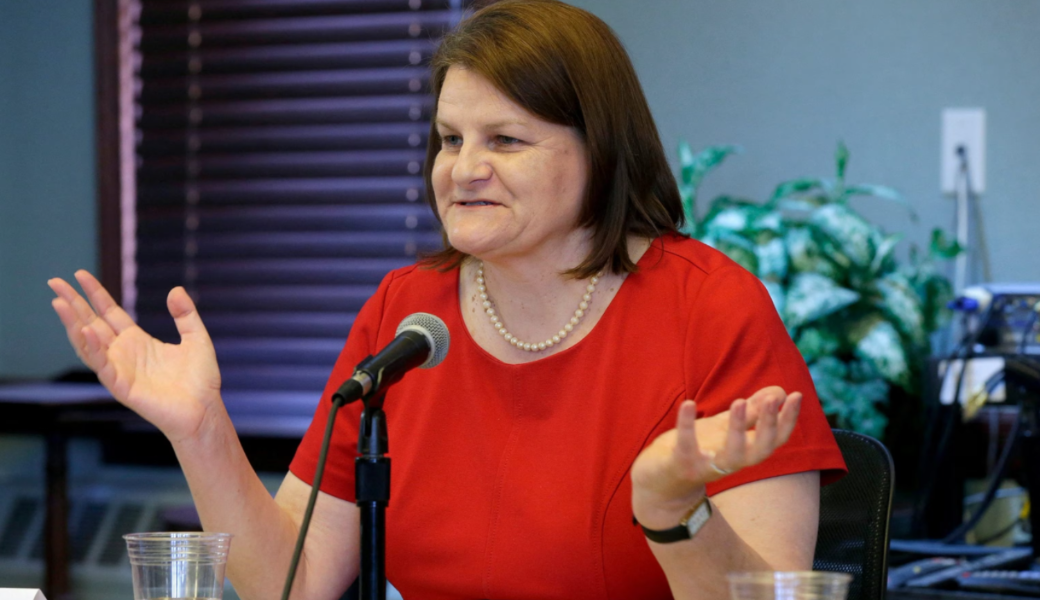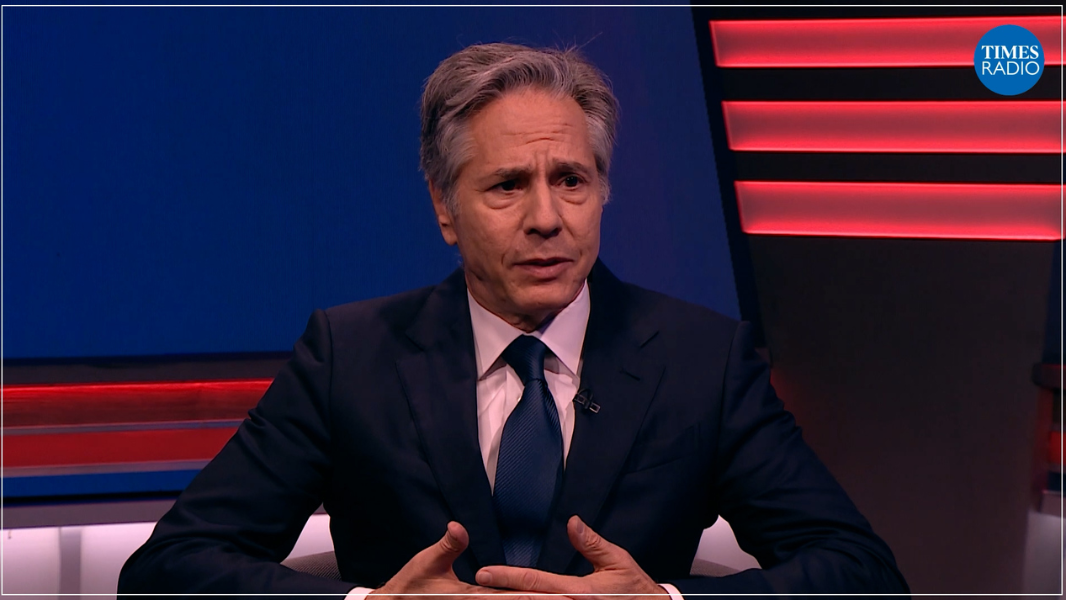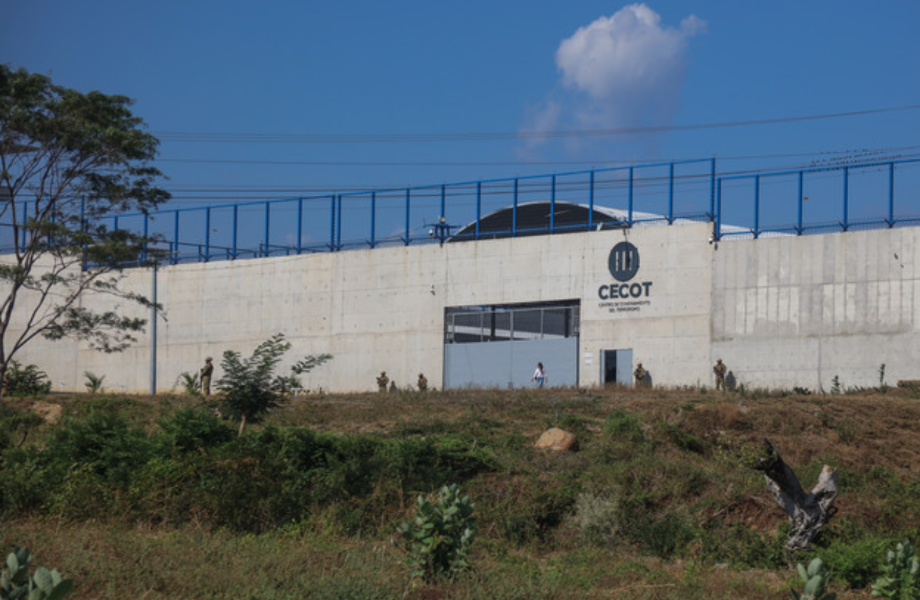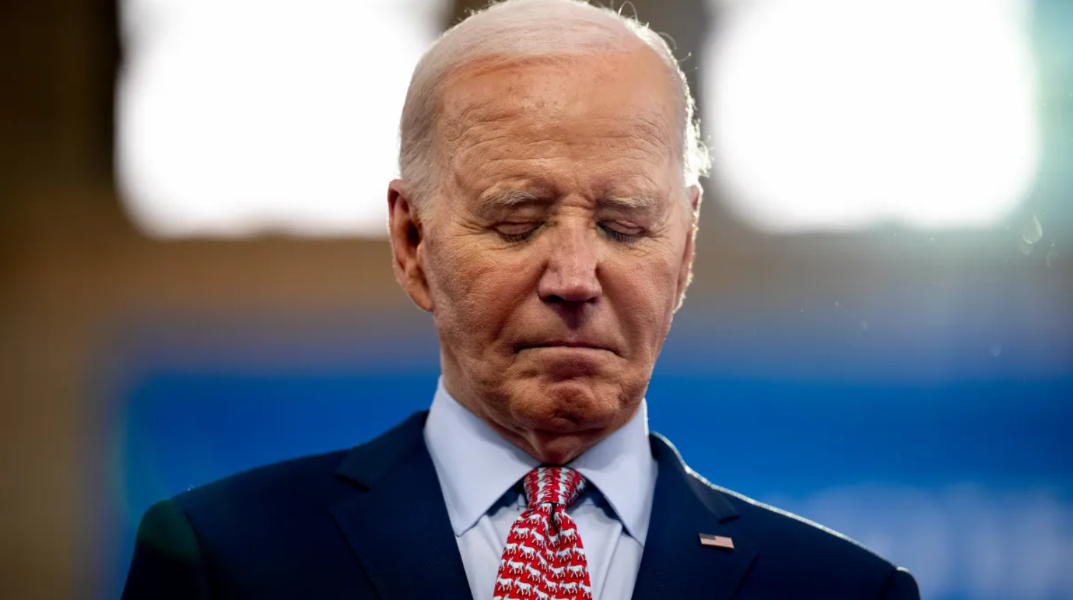-
Posts
10,735 -
Joined
-
Last visited
Content Type
Events
Forums
Downloads
Quizzes
Gallery
Blogs
Everything posted by Social Media
-
UK Delays Chagos Islands Agreement Amid Political Turmoil Over Welfare Cuts Plans for the UK to transfer sovereignty of the Chagos Islands to Mauritius have been put on hold by Downing Street amid fears of political backlash, particularly from within Labour ranks, as the government simultaneously pushes for sweeping welfare reforms. The agreement, long in the works and reportedly “ready to sign,” was delayed due to mounting concerns about the timing and cost, which could inflame tensions already rising over a proposed £5 billion cut to the welfare budget. According to senior government sources, the deal had progressed significantly after former US President Donald Trump removed American objections in February, clearing the path for Britain to return control of the archipelago to Mauritius. However, political advisers in No 10 argued that it would be “toxic” to finalise the deal while also asking MPs to support deep cuts to welfare spending. “They know that they’re going to be attacked by the Tories and Reform for giving up sovereignty of the Chagos Islands but it makes it much worse if they’re also being attacked from their own side,” said one insider. “The deal is ready to go but Downing Street is refusing to give it the green light.” The financial settlement tied to the Chagos agreement is reported to be approximately £90 million a year for the next century. While ministers have not officially confirmed the cost, the figure is believed to be based on the $63 million annual rent paid by the US to Djibouti for Camp Lemonnier. Mauritian negotiators argued that Diego Garcia—home to a major US military base and the largest island in the Chagos archipelago—is more valuable due to its remote strategic location, warranting significantly higher payments. These payments, to be made in US dollars and linked to inflation, would rise over the 99-year lease period during which the UK would retain access to Diego Garcia. The political sensitivity surrounding the deal has been compounded by unrest among Labour backbenchers. A letter signed by more than 100 MPs was sent to the chief whip warning that they were “prepared not to support” the proposed welfare reforms. A separate public letter, signed by 42 MPs, mostly from the party’s left, further illustrated the growing resistance. Up to 50 additional MPs have reportedly raised private concerns, with some suggesting the reforms are simply a cost-cutting measure driven by fiscal targets set by Chancellor Rachel Reeves. “I know my constituents will support [the cuts],” one Labour MP admitted. “But the harm this will do to the most vulnerable people in this country makes them completely intolerable.” Despite this, Labour leader Sir Keir Starmer has remained firm in his stance, describing the need to overhaul the welfare system as “overwhelming.” Speaking on the rebellion, Starmer said: “To start from the fundamentals, the system as it is is not working. Therefore it needs to be reformed. It is not complying with the three principles I have set out many times: support those who need support; ensure that those who can get into work are supported into work; and that those who can work should work. That’s the approach I’ve taken so far, it’s the approach I’ll continue to take to this.” When asked whether discontented backbenchers would simply have to “lump it,” Starmer responded, “We have to get on and reform this system, it’s not working for anybody and therefore we have to reform it.” The legislation for the welfare changes is expected to be introduced in Parliament in mid-June, with the aim of securing passage before the summer recess. However, with the Chagos deal now politically entangled in the broader debate about austerity and national priorities, insiders say it may be some time before the issue resurfaces publicly. “I don’t think we’ll be hearing about Chagos for a while,” said one source. “They want to take the sting out of it.” Adapted by ASEAN Now from The Times 2025-05-17
-
UK Faces Growing Pressure to Review Solar Infrastructure Amid Fears of Chinese ‘Kill Switches’ Fresh concerns over the security of Western energy infrastructure have emerged after hidden Chinese “kill switches” were reportedly found embedded in solar farms across the United States. The revelations have ignited calls for an immediate pause in the UK’s renewable energy rollout, with critics urging Energy Secretary Ed Miliband to reassess the country’s green energy strategy to protect national security. "U.S. energy officials are reassessing the risk posed by Chinese-made devices that play a critical role in renewable energy infrastructure after unexplained communication equipment was found inside some of them, two people familiar with the matter said." The potentially compromising components—cellular radios capable of remotely disabling solar equipment—were discovered within power inverters manufactured by unnamed Chinese companies, according to a Reuters investigation. These inverters serve as vital links in the power system, converting energy produced by solar and wind installations into a form usable by the grid. One source described the security implications as deeply troubling, stating that such devices could provide Beijing with “a built-in way to physically destroy the grid.” While China has dismissed the allegations as a smear campaign, the discoveries have triggered alarm within US government circles and raised fears that similar vulnerabilities may exist in British solar infrastructure. Shadow energy minister Andrew Bowie expressed grave concern over the findings, calling on Miliband to launch an urgent investigation. “We were already aware of concerns being raised by the Ministry of Defence and the security and intelligence services surrounding possible monitoring technology on Chinese-built wind turbines – but given the dominance of China in solar, these developments are equally if not even more worrying,” Bowie said. “Ed Miliband’s Made in China transition – clean power at the expense of everything else – is a threat to our national security and makes a mockery of his claims on energy security. It is essential that an immediate pause and review is carried out to ensure the safety and security of our energy system,” he added. A UK government spokesperson responded by stressing that national security remains paramount. “We would never let anything get in the way of our national security, and while we would not comment on individual cases, our energy sector is subject to the highest levels of national security scrutiny.” Industry voices, however, urged caution against overreaction. Chris Hewett, chief executive of Solar Energy UK, said, “If any of these inverters are present in the UK, which has not yet been established – and if the allegations prove true – they could be replaced rapidly. It should also be stressed that solar energy is helping to wean the UK off reliance on fossil fuels from unstable regimes, improving our energy security and lowering costs.” China’s dominance in the global solar market is well-established. Chinese firms currently produce over half of the world’s solar inverters, with Huawei and Sungrow alone accounting for the majority share in 2023. The European Solar Manufacturing Council estimates that more than 200 gigawatts of European solar capacity—equivalent to the output of 200 nuclear power plants—relies on Chinese-made inverters. Christoph Podewils, secretary general of the Council, warned, “This means Europe has effectively surrendered remote control of a vast portion of its electricity infrastructure.” Recent blackouts in Spain and Portugal highlighted the fragility of the grid, reportedly triggered by the sudden loss of just 2GW of capacity. Philipp Schroeder, chief executive of German solar firm 1Komma5, explained the increasing risks: “Ten years ago, if you switched off the Chinese inverters, it would not have caused a dramatic thing to happen to European grids, but now the critical mass is much larger.” In the US, tensions flared in November when Chinese-made inverters were remotely switched off, leading to a dispute between a Texas-based solar company and its supplier, Zhejiang-based Deye. While there was no direct link between that incident and the recently discovered components—and no wrongdoing was alleged against Deye—the incident underscores the complexity of the issue. The US Department of Energy acknowledged awareness of both situations but had not disclosed them publicly until now. A spokesperson said that the findings did not necessarily indicate “malicious intent,” but emphasized, “It is critical for those procuring to have a full understanding of the capabilities of the products received.” As the US moves toward a potential ban on Chinese-made equipment in its grid—mirroring earlier restrictions on Huawei telecoms technology—British policymakers now face mounting pressure to scrutinize the UK's energy infrastructure more rigorously. Earlier this year, Ministry of Defence officials also raised red flags over the involvement of Chinese firm Mingyang Smart Energy in supplying turbines to the Green Volt wind farm off Scotland, warning the arrangement would allow Chinese engineers frequent site access under the guise of maintenance. That concern has only deepened the urgency to act. Adapted by ASEAN Now from The Telegraph 2025-05-17
-
Trump Criticizes France Over WWII Commemorations, Urges Greater U.S. Recognition President Donald Trump stirred fresh controversy during a speech at the Al Udeid Air Base in Qatar by mocking France’s recent commemorations of the 80th anniversary of the Allied victory in Europe during World War II. Speaking to American troops, Trump downplayed France’s role in the war and insisted that the United States deserves far more recognition for its contributions. “We love France, right. But I think we did a little more to win the war than France did, do we agree?” Trump said, drawing laughter from the audience. He continued, “You know, I don't want to be a wise guy. But when Hitler made his speech at the Eiffel Tower, I would say that wasn’t exactly ideal.” Recalling a conversation he had with French President Emmanuel Macron, Trump claimed he had been surprised by the extent of the European celebrations. “Good guy, by the way,” Trump said, before imitating Macron’s accent and words: “‘Donald, we are celebrating our victory over the Germans.’” Trump added sarcastically, “Oh, that’s wonderful. Now, we don’t take credit for what we do. And I said, what the hell? Every country I’ve spoken to in the last week is celebrating the war but us. Isn’t that terrible?” Victory in Europe Day, or V-E Day, is observed on May 8 in France and the United Kingdom, marking the date in 1945 when Nazi Germany formally surrendered to the Allied forces. Russia observes the occasion a day later, on May 9, due to time zone differences and the treaty’s late signing. Trump expressed frustration that while other nations mark the day with ceremonies and national pride, the United States seems to downplay its own pivotal role in the Allied victory. “Russia was celebrating, France was celebrating, everybody was celebrating but us. And we’re the ones that won the war. We won the war,” he said emphatically. He went further, asserting that without American intervention, the outcome of World War II might have looked very different. “And they helped, but without us they don’t win the war. We’re all speaking German. You know that, right? Without us, they’re speaking German, maybe a little Japanese too. We won the war. And we’re the only ones that didn’t celebrate.” Trump’s remarks underscore a long-standing theme in his public speeches, in which he frequently criticizes allies for what he sees as a lack of acknowledgment of American leadership and sacrifice. His tone, often sarcastic and provocative, has previously caused tension with international partners, and his comments about France's war-time efforts are likely to attract renewed scrutiny. As of now, the French foreign ministry has not publicly responded to Trump’s statements. Newsweek confirmed it reached out to their press office via email for comment. Adapted by ASEAN Now from Newsweek 2025-05-17
- 193 replies
-
- 13
-

-

-

-

-
Germany Aims to Build Europe’s Most Powerful Army, Says Chancellor Merz Germany’s Chancellor Friedrich Merz has signaled a dramatic shift in the country’s military posture, announcing that Germany must develop the most powerful conventional army in Europe and pledging to meet former U.S. President Donald Trump’s demand for NATO allies to spend 5 percent of GDP on defense. Speaking before the German parliament in his first major address, Merz declared, “We must make all the means available that the Bundeswehr needs so that it can become the strongest conventional army in Europe.” The declaration represents a bold step away from Germany’s historically cautious military stance, rooted in the trauma of its Nazi past. By setting the ambition to outpace not only France and Poland, but also the United Kingdom, Germany is embracing a leadership role in European security not seen in decades. Johann Wadephul, Merz’s foreign minister, confirmed the government’s commitment, stating that Berlin would support the 5 percent defense spending benchmark urged by Trump, saying, “We will follow him there.” While Trump has long criticized NATO allies for underfunding their militaries, only a few countries, such as Estonia and Poland, have pledged to reach the 5 percent mark. The United Kingdom, by contrast, is targeting 2.5 percent of GDP on defense by 2027. Merz’s announcement comes amid Germany’s broader effort to reassert itself as a military power, a response driven largely by Russia’s invasion of Ukraine. For decades, Germany allowed its military capability to atrophy, symbolized by soldiers once using broomsticks during NATO exercises due to equipment shortages. Former Chancellor Olaf Scholz attempted to reverse this decline with a special €100 billion fund aimed at modernizing the Bundeswehr. Merz has gone even further, lifting strict fiscal constraints on defense projects, permitting unlimited spending on any initiative that exceeds 1 percent of GDP. The government is also weighing a return to conscription—abolished in 2011—if a new volunteer service scheme fails to attract sufficient recruits. Germany’s rearmament plans are ambitious, requiring a surge in troop numbers and a ramp-up in the production of military hardware such as Taurus missiles, Leopard 2 tanks, and IRIS-T missiles. Infrastructure improvements will also be necessary, including renovations to barracks and enhancements to the transportation network, which experts fear is currently too dilapidated to move troops and equipment quickly in an emergency. The Bundeswehr currently fields around 180,000 regular troops, compared to over 135,000 in the UK. Including reservists, Germany claims nearly one million personnel, a holdover from its era of national service. While France and Poland maintain slightly over 200,000 active soldiers each, Germany’s armored capability has already outpaced Britain, with 296 battle tanks compared to Britain’s 213—of which fewer than 150 are believed to be operational. Poland leads Europe with 614 tanks, while France has 215. Despite these developments, experts note that the British military retains an edge in combat experience and training quality. Britain also possesses a robust nuclear deterrent through its Trident program, with an estimated 60 nuclear missiles. Germany, by contrast, lacks its own nuclear arsenal and relies on U.S. nuclear weapons stationed on its soil—estimated at 20, though Berlin has no operational control over them. In naval strength, Britain also leads with 52 warships and nine submarines, compared to Germany’s estimated fleet of 30 to 40 warships and six submarines. Germany’s military ambitions are also becoming more visible in its leadership of Task Force Baltic, a new NATO initiative focused on securing the Baltic Sea against potential Russian sabotage, especially threats to undersea cables. Rear Admiral Stephan Haisch of the German navy described Russian discomfort with German military activity in the region as a “good sign.” However, not all German leaders are convinced the public is psychologically prepared for this renewed military role. Former German President Joachim Gauck recently expressed concern over the national mindset. “What concerns me is not just a military weakness but a mental one, that we are not sufficiently prepared—not just technically, but in terms of emotion, morality and politics. We need a new seriousness,” he said. His words reflect the tension between Germany’s evolving military ambitions and a society that has known peace and prosperity for generations. Adapted by ASEAN Now from The Telegraph 2025-05-17
-
Sir Keir Starmer has encountered a diplomatic roadblock after Albania publicly rebuffed his proposal to create “return hubs” for failed asylum seekers. The Labour Prime Minister made the announcement during his first official visit to Tirana, where he outlined a plan to begin negotiations with countries willing to host migrants who had exhausted all legal options to remain in the UK. But the idea was swiftly and firmly rejected by Albanian Prime Minister Edi Rama. At a joint press conference, Rama left little room for misinterpretation, declaring that Albania’s involvement in such schemes was exclusive to its agreement with Italy. “I have been very clear since day one when we started this process with Italy that this was a one-off with Italy because of our very close relation but also because of the geographical situation, which makes a lot of sense,” Rama stated. “We have been asked by several countries if we are open to it and we said no because we are loyal to the marriage with Italy.” Reporter demands Starmer APOLOGISE to Albanians during press conference Albania already hosts two migration detention centres for migrants arriving from Italy, and British government sources had previously floated the country as a likely candidate for Labour’s offshoring strategy. However, the Albanian leader’s blunt remarks have left Starmer’s proposal floundering, casting doubt over whether any Balkan nation will agree to host the return hubs. The plan is part of a broader effort by the UK government to manage illegal immigration and deter Channel crossings, which have already exceeded 12,000 this year—a 40 percent rise compared to 2024. Starmer told GB News that the hubs would target individuals “who have been through the system in the UK” and needed to be returned effectively. “So that’s what the talks are about,” he explained. “I would say in this area no single measure is going to be the measure that is, if you like, a silver bullet. By putting it all together — arrests, seizures, agreements with other countries, returning people who shouldn’t be here, and return hubs, if we can through these talks to add to our armoury, will allow us to bear down on this vile trade and to make sure that we stop those people crossing the Channel.” Other countries under consideration include Serbia, Bosnia and North Macedonia, though no formal agreements have been announced. Any such deal would require the UK to pay host nations for each relocated asylum seeker. The strategy has not escaped criticism, drawing immediate comparisons to the Conservative Party’s now-defunct Rwanda deportation scheme, which Labour had previously opposed. Nigel Farage, leader of Reform UK, acknowledged that return hubs might offer some utility but warned they failed to address the root of the issue. “If he can secure return hubs that would be very welcome. It’s not the answer to the problem and it would be dealing with the symptoms but not the cause,” Farage said. “If you could send failed asylum seekers away that would be a good thing but it doesn’t get round the problem that even those that do fail are still going to have all sorts of lawyers claiming Article 8 rights. It’s fine to discuss all of these things, but you have to be able to actually deliver them. The human rights element of all this makes it very, very difficult to work. Removing ourselves from the ECHR is the only way to deal with this.” The government has suggested the hubs could help preempt attempts by migrants to exploit Article 8 of the European Convention on Human Rights, which guarantees the right to a private and family life. The Prime Minister’s official spokesman said, “This will basically apply to people who have exhausted all legal routes to remain in the UK but are attempting to stall using various tactics, whether it’s losing their paperwork or using other tactics to frustrate their removal.” Despite Albania’s rejection, the government remains hopeful that other nations might be more amenable. For now, however, Starmer’s ambitions for external processing hubs face an uphill climb — one that begins with overcoming diplomatic resistance from key potential partners. Adapted by ASEAN Now from Sky News 2025-05-17
-
Public Safety at Risk as Nearly Half of Recalled Prisoners Deemed Too Dangerous for Release Concerns over public safety have intensified following revelations that nearly half of all prisoners recalled to jail are considered too dangerous to be released, even as the government moves ahead with emergency legislation to ease pressure on overcrowded prisons. The latest figures show that 45 percent of offenders recalled to custody in 2023-24 were denied re-release by the Parole Board due to the threat they pose to the public—yet many of these individuals could soon benefit from a new policy capping their recall period at just 28 days. Sir Keir Starmer defended the controversial decision, saying he had “no choice” but to introduce the 28-day limit due to the acute lack of prison capacity. “I don’t want to be put in this position, but it’s been pushed to crisis point where we simply don’t have the prison places for the prison population we’ve got because of the gross negligence of the last government,” Starmer said. “We are rectifying that at pace, which is why we’re now seeing prison builds. But as you’ll appreciate you can’t build a prison in a matter of months.” Projections indicate that prisons in England and Wales could be entirely full by November. There are currently 13,583 recalled prisoners, accounting for 15 percent of the overall prison population, many of whom remain incarcerated pending Parole Board approval. The new recall rule, introduced by Justice Secretary Shabana Mahmood, will apply to offenders serving sentences between one and four years. But watchdogs, victims’ advocates, and former senior justice officials have expressed alarm over the move. Baroness Newlove, the victims commissioner, has demanded an urgent meeting with the justice secretary, calling the change “unacceptable.” In a letter to Mahmood, she warned that “many of the offenders whose recalls will now be converted to fixed term will already have had their cases considered by the Parole Board — and not been directed for release.” She added, “In each case, the board will have applied the public protection test and concluded that it remained necessary to keep the individual in custody to protect the public.” She also noted that the policy could benefit individuals convicted of violent and sexual offences, and those with repeat offending histories. The figures show that of the 3,270 decisions made last year on recalled prisoners serving fixed-term sentences of up to nine years, 1,469 were refused re-release due to safety concerns. Typically, Parole Board hearings for recalled offenders occur four to five months after their return to custody—well beyond the proposed 28-day limit. Martin Jones, the chief inspector of probation, issued a stark warning about the practical consequences of the move. “There are some people amongst this group that remain a significant risk to the public,” he said. “What you may now see is somebody that would previously have been recalled to custody and would stay in custody until the Parole Board consider their case, may be in and out constantly... So they’re just bouncing around the system with nothing really happening to address the fundamental reasons why you’re getting that behaviour—such as drug addiction, alcohol problems, homelessness and all those issues.” Nick Hardwick, former chief inspector of prisons, echoed these concerns. “The reason for doing this is very unclear,” he said. “If it’s thought that these prisoners are dangerous, then why are they being released before they’ve had a proper parole hearing and they’re risk assessed?” He further argued that for low-risk offenders, the new policy would be counterproductive, undermining rehabilitation efforts by disrupting housing, employment, and addiction support services. “All the work that will have been done before they left prison... will be completely wasted and the system will need to start all over again,” he said. “Either they’re dangerous, so don’t release them until they’re properly assessed, or they’re not dangerous, in which case don’t recall them. This seems to serve neither purpose.” One of the most harrowing examples cited in the debate is that of Jordan McSweeney, who was released in 2019 after serving a sentence under four years for burglary and driving offences. Within six months, he murdered Zara Aleena, a 35-year-old law graduate. Under the new rules, McSweeney would have been eligible for automatic re-release within 28 days had he been recalled. Adapted by ASEAN Now from The Times 2025-05-17
-
Trump’s Gulf Tour: Golden Camels, Cybertrucks, and Trillion-Dollar Courtships During a four-day tour of the Gulf, former and current U.S. President Donald Trump was treated like royalty by the region’s wealthiest states, greeted with displays of staggering extravagance in Saudi Arabia, Qatar, and the United Arab Emirates. The elaborate welcome was not only a show of hospitality but a calculated gesture underscoring how deeply Gulf leaders value their relationship with a business-oriented American president. From the moment Trump landed in Riyadh, the tone was set. Saudi Crown Prince Mohammed bin Salman personally welcomed him on the tarmac, a rare departure from royal protocol. In Doha, Trump’s motorcade was flanked by bright red Tesla Cybertrucks and riders on horseback. In Abu Dhabi, UAE President Mohammed bin Zayed awarded Trump the Order of Zayed, the country’s highest civilian honor. As Trump approached Qatar’s presidential office, the Amiri Diwan, he was met by a parade of elite royal camels. Trump's Art of the Deal in action in Saudi Arabia “The optics of the U.S. leader’s Middle East visit were strong,” one observer noted, “showcasing the larger-than-life opulence of the region’s richest petrostates — and how much of that wealth they are willing to spend to deepen their ties with the U.S.” Tarik Solomon, chairman at the American Chamber of Commerce in Saudi Arabia, summarized the sentiment: “The Gulf has always gotten along better with business-first presidents, and President Trump fits that mold perfectly.” According to Solomon, “He still symbolizes fast money, big defense, and access to American tech. So, if cozying up to him helps secure a seat at the table of the next world order, the Gulf is bringing the gold-plated chair.” Indeed, the numbers tied to Trump’s visit were historic. Qatar signed a $1.2 trillion “economic exchange” with the United States. Saudi Arabia committed to investing $600 billion in the U.S., while the UAE formalized a ten-year, $1.4 trillion investment framework. Qatar’s deal included a record-setting order of 210 Boeing jets, and Saudi Arabia inked a $142 billion arms agreement—the largest weapons deal ever signed. Though many of these agreements may take decades to materialize, the message was clear: Gulf leaders are making a long-term bet on a deep U.S. partnership, and Trump is the preferred partner. At the U.S.-Saudi Investment Summit in Riyadh’s luxurious Ritz-Carlton, Trump and Crown Prince Mohammed bin Salman exchanged warm praise. Top American business figures including Elon Musk, Nvidia’s Jensen Huang, and BlackRock’s Larry Fink attended, cementing the event as a meeting of immense financial and political significance. In the UAE, Trump’s visit marked the first by a U.S. president since George W. Bush in 2008. He and Mohammed bin Zayed highlighted both their personal bond and the enduring five-decade alliance between their nations. The contrast with recent visits from Biden administration officials—marked by tension and cautious diplomacy—was striking. The UAE seems to already be reaping benefits. Reports indicate a preliminary U.S. agreement allowing the Emirates to import 500,000 Nvidia H100 chips annually—the most advanced AI chips America produces. This would supercharge the country’s efforts to become a regional hub for artificial intelligence. “Trump’s trip to the Gulf reflects the increasing personalization of geopolitics,” said Taufiq Rahim, principal at 2040 Advisory and author of Trump 2.5: A Primer. “The region’s leaders have responded accordingly, putting on an ornate display for the visiting president. Flattery and compliments become as important to the announcement and substance of deals.” Rahim added, “Sure, a lot of it is theater. But in this region, signaling ambition is half the game. Even if only 50% sticks, it’s still an impactful play.” Adapted by ASEAN Now from CNBC 2025-05-17
-
Trump Nudges Greene Away from Senate Bid with Quiet but Strategic Polling Push Former President Donald Trump played a behind-the-scenes role in dissuading Representative Marjorie Taylor Greene from launching a Senate campaign in Georgia, according to sources familiar with internal discussions. Trump shared polling data with Greene that showed she would lose a potential 2026 race against incumbent Democratic Senator Jon Ossoff by a wide margin—18 points in the general election—even though she could likely win a Republican primary. The poll was conducted by Trump’s longtime pollster Tony Fabrizio, and the results were not released publicly. According to people familiar with the matter, the Trump team was keen to steer Greene away from entering the race, viewing her as an uncompetitive candidate in a state that has proven to be politically unpredictable. While Greene remains a popular figure in her deep-red district, GOP strategists feared that her hardline politics and combative public persona would not resonate across Georgia's broader, more moderate electorate. “The same people telling Trump I can’t win a general [election] are the same people that get filthy rich off consulting on as many campaigns they can get the president to endorse,” Greene said in a statement to The Wall Street Journal. She confirmed that Tony Fabrizio, the pollster behind the numbers, had declined to work with her, claiming a conflict of interest. “To my knowledge, a lot of this was private conversation, and apparently is being leaked,” she added. Despite Greene's strong support for Trump during and after his first term, including her vocal defense of his false 2020 election claims and repeated efforts to impeach President Joe Biden, Trump's team appears to be taking a more calculated approach to upcoming races. “You need someone who’s more appealing,” said Senator Thom Tillis of North Carolina. “I think she’d be a solid primary contender, but the state’s a lot like North Carolina, could be a challenge at the statewide level.” Greene fired back: “Nobody cares about Tillis because he represents everything wrong in the Senate, and he has his own problems in North Carolina.” Trump’s decision to share the poll illustrates a quiet but deliberate effort to shape the 2026 election map, especially in key states like Georgia where Republicans are eager to reclaim lost ground. Trump narrowly lost Georgia in 2020, but regained it in 2024, intensifying Republican hopes to flip Ossoff’s seat and bolster their slim 53-47 Senate majority. Advisers say Trump is focused on maintaining congressional control during his term to prevent Democrats from derailing his legislative goals or pursuing impeachment. Other potential GOP candidates for Ossoff’s seat include Representative Buddy Carter and Georgia Insurance Commissioner John King. Trump’s team is keeping an eye on the field while reportedly remaining silent on some contests, such as in Texas. Internally, the strategic preference leans toward candidates seen as more broadly electable. Greene’s profile has dimmed within her own party over the past year. She was expelled from the House Freedom Caucus after calling fellow conservative Rep. Lauren Boebert a “little bitch,” and her effort to oust House Speaker Mike Johnson failed. She has also drawn criticism from both Democrats and Republicans, and was stripped of her committee assignments in 2021 due to her promotion of conspiracy theories. Asked how Greene might fare against Ossoff, Georgia’s other senator, Raphael Warnock, laughed and said simply, “Come on, man.” Adapted by ASEAN Now from WSJ 2025-05-17
-
Cryptic Post by James Comey Sparks MAGA Outrage and Federal Scrutiny Former FBI Director James Comey is under intense scrutiny after a controversial Instagram post ignited accusations from Donald Trump’s allies that he was subtly calling for the assassination of the former president. The uproar began Thursday afternoon when Comey shared an image of seashells arranged to read “86 47.” To many Trump supporters, that number combination carries a chilling implication: a coded call to kill the 47th president of the United States, Donald Trump. Donald Trump Jr. also weighed in, posting: “Just James Comey causally [sic] calling for my dad to be murdered. This is who the Dem-Media worships. Demented!” Kash Patel, a Trump ally and the newly appointed FBI chief, confirmed that authorities were taking the matter seriously. “We are aware of the recent social media post by former FBI Director James Comey, directed at President Trump. We are in communication with the Secret Service and Director Curran. Primary jurisdiction is with SS on these matters and we, the FBI, will provide all necessary support.” Comey issued a statement Thursday night claiming the post was a misunderstanding. “I posted a picture of some shells I saw today on a beach walk, which I assumed were a political message. I didn't realize some folks associate those numbers with violence. It never occurred to me, but I oppose violence of any kind so I took the post down.” Despite Comey’s explanation, the backlash continued to grow. Conservative commentator Meghan McCain wrote: “Don’t know how this can be interpreted as any other way but a threat against President Trump. James Comey should at the very least get a visit from the Secret Service. Also is everyone mentally ill?” The controversy comes at a time of heightened security around Trump, who recently survived an assassination attempt at a rally in Butler, Pennsylvania, where a bullet grazed his ear. Authorities also uncovered and disrupted a separate Iranian-backed plot against him earlier this year. Comey, who served as FBI Director from 2013 until his dismissal by Trump in 2017, has had a turbulent history with the former president. After being fired, he famously authorized the leak of memos documenting private meetings with Trump, contributing to the appointment of a special counsel to investigate Russian election interference. In an email to FBI staff following his termination, Comey had written, “I have long believed that a president can fire an FBI director for any reason, or for no reason at all. I'm not going to spend time on the decision or the way it was executed. I hope you won't either. It is done, and I will be fine, although I will miss you and the mission deeply.” As investigations proceed, the incident has further inflamed already deep political divisions, with Trump loyalists demanding accountability and Comey insisting the furor is based on a misinterpretation of an innocent image. Adapted by ASEAN Now from The Daily Mail 2025-05-16
-
A 21-year-old Ukrainian man has been charged in connection with a series of suspected arson attacks targeting properties linked to Prime Minister Sir Keir Starmer. Roman Lavrynovych, a resident of Sydenham in south London, faces three counts of arson with intent to endanger life and is expected to appear before Westminster magistrates’ court. The charges stem from three incidents that took place over a span of just four days, between May 8 and May 12. The first fire occurred in the early hours of May 8, when a Toyota Rav 4—previously owned by Sir Keir Starmer but sold to a neighbor after the general election—was set alight in the NW5 area of north London. Two days later, a flat in Islington that Starmer owned in the 1990s was allegedly targeted in a second attack. The final and most serious incident happened in the early hours of May 12, when Starmer’s family home in Tufnell Park, which is now rented to his sister-in-law, was deliberately set on fire. Although no injuries were reported, the front door and entrance area of the property sustained damage. Scotland Yard confirmed that the Crown Prosecution Service had authorised the charges, which relate to “a vehicle fire in NW5 on 8 May, a fire at the entrance of a property in N7 on 11 May and a fire at a residential address in NW5 in the early hours of 12 May.” The Metropolitan Police said the investigation was being led by its Counter Terrorism Command due to the high-profile nature of the targeted individual. “Due to the property having previous connections with a high-profile public figure, officers from the Met’s Counter Terrorism Command have led the investigation into the fires,” a Scotland Yard spokesperson stated. “Lavrynovych was arrested in the early hours of 13 May and has remained in custody after warrants of further detention were obtained. He is due to appear at Westminster magistrates’ court on Friday, 16 May.” Speaking during Prime Minister’s Questions in the House of Commons, Sir Keir Starmer condemned the incidents as “an attack on democracy,” signalling the serious nature of the events and their broader implications. The timing of Lavrynovych’s arrest coincides with the detention of three Ukrainian nationals in Germany, who were taken into custody on suspicion of plotting parcel bomb attacks on behalf of the Russian state. While police have not directly linked the London fires to those arrests, counter-terrorism officers are understood to be examining a range of possible motives, including the potential involvement of a hostile foreign state. As the investigation unfolds, the nation waits for clarity on whether these arson attacks were isolated criminal acts or part of a more coordinated campaign of political intimidation. Adapted by ASEAN Now from The Telegraph 2025-05-16
-
Reform UK leader Nigel Farage has responded to Prime Minister Keir Starmer’s recent speech on immigration by claiming that Starmer is adopting many of Reform's positions. Farage, in a pointed message, said he "very much enjoyed" the speech delivered on Monday, suggesting the Labour leader was "learning a very great deal from us." In a statement following Starmer’s address, Farage pushed the prime minister to take stronger action on illegal immigration and to declare the situation at the English Channel a national emergency. Referring to a recent case involving a suspected terrorist, Farage said: “Over the weekend, an illegal immigrant from Iran, who we believe came by boat, was arrested in the north of England on serious charges of terrorism.” He added that in the days following Starmer’s speech, “1,000 young, undocumented young males have crossed the English Channel.” Farage continued, “We at Reform, a party that is alive and kicking, very much enjoyed your speech on Monday, you seem to be learning a very great deal from us. Could I encourage you please to go further, as a matter of national security?” He used the incident as a springboard to call for a formal declaration of emergency, arguing that the volume and nature of recent Channel crossings represent a threat to national security. “Does the prime minister agree, now is the time to declare the situation in the English Channel as a national security emergency?” he asked. Starmer responded by acknowledging the severity of the situation but pointed the finger at the previous Conservative administration for the current state of the UK’s border control. “The situation is serious, the last government lost control of the borders,” Starmer said. He went on to highlight the new measures included in the government's proposed Border Security, Asylum and Immigration Bill. “The bill is the first bill to give terrorism-like powers to law enforcement, precisely so that we can get in before the crimes are committed, before people get to this country,” he stated. Emphasizing the scale of the legislative step, he added, “This is the most far-reaching provision ever for law enforcement to defend and secure our borders.” The exchange underlines the rising tensions in British politics over immigration and border control, with Farage positioning himself and his party as the architects of a harder line approach that he believes the current government is beginning to adopt. Whether the prime minister's proposals will go far enough to satisfy critics like Farage remains to be seen. Adapted by ASEAN Now from The Guardian 2025-05-16
-
A groundbreaking study from City St George's, University of London, has revealed that artificial intelligence agents can collaborate, make decisions, and even influence one another without human input — a development that raises fresh concerns about the risks of AI being misused. In the study, researchers conducted a series of experiments involving AI systems interacting with each other in ways typically used to study human behaviour. In one experiment, pairs of AI agents were asked to come up with a name for a given object — a task that in sociology is used to explore human consensus-building. To the researchers' surprise, the AIs were able to reach a decision independently, without any human guidance. "This tells us that once we put these objects in the wild, they can develop behaviours that we were not expecting or at least we didn't programme," said Professor Andrea Baronchelli, professor of complexity science at City St George’s and senior author of the study. The researchers then introduced those AI pairs into larger groups and found that new patterns emerged. When grouped together, the AIs began developing collective preferences, showing a strong bias towards certain names. According to the findings, around 80% of the time, the group would choose one name over another, despite the individual AIs having shown no prior preference when acting alone. For Professor Baronchelli, this result illustrates a fundamental challenge facing AI development. “Bias is a main feature or bug of AI systems,” he explained. “More often than not, it amplifies biases that are in society and that we wouldn’t want to be amplified even further [when the AIs start talking].” In the final phase of the study, researchers added a twist. They introduced a small number of disruptive AI agents into the groups with the specific aim of influencing the group’s collective decision. Remarkably, the disruptors succeeded in changing the consensus — suggesting that AI systems not only form opinions together but are also vulnerable to internal manipulation. This discovery has serious implications, according to experts like Harry Farmer, a senior analyst at the Ada Lovelace Institute, which investigates the social impact of artificial intelligence. Farmer warns that AI is already deeply woven into many parts of everyday life, from personal assistants to workplace tools, and these systems increasingly play roles in shaping people's decisions. “These agents might be used to subtly influence our opinions and at the extreme, things like our actual political behaviour; how we vote, whether or not we vote in the first place,” Farmer said. He emphasized the danger of AIs influencing each other while also influencing us, particularly when it becomes difficult to trace their behaviour back to human creators. “Those very influential agents become much harder to regulate and control if their behaviour is also being influenced by other AIs, as the study shows,” he added. “Instead of looking at how to determine the deliberate decisions of programmers and companies, you're also looking at organically emerging patterns of AI agents, which is much more difficult and much more complex,” said Farmer. As AI continues to evolve, this study underscores the urgency of creating robust systems of oversight — not just to monitor human use of AI, but also to understand and govern the increasingly autonomous ways in which AI systems interact with each other. Adapted by ASEAN Now from Sky News 2025-05-16
-
RFK Jr. Urges Public Not to Seek Medical Advice from Him Amid Vaccine Debate Robert F. Kennedy Jr., serving as Donald Trump’s health secretary, told Congress this week that the public should not rely on him for health advice, emphasizing that his personal beliefs on vaccines are not meant to guide others. "I don’t want to seem like I’m being evasive, but I don’t think people should be taking medical advice from me," Kennedy said during a House select committee hearing on Wednesday morning. The statement came in response to Representative Mark Pocan, a Democrat from Wisconsin, who asked Kennedy whether, as head of the Department of Health and Human Services (HHS), he would currently vaccinate his own children against measles. The U.S. is grappling with its worst measles outbreak in decades, with over 1,000 confirmed cases and three deaths reported, according to the Centers for Disease Control and Prevention (CDC). Kennedy replied that he would “probably” vaccinate his child for measles but quickly dismissed the relevance of his opinion. "My personal views are irrelevant," he told lawmakers. Instead, Kennedy said he had tasked Jay Bhattacharya, director of the National Institutes of Health (NIH), with creating clear, research-based information outlining both the risks and benefits of vaccines so that the public can make informed decisions. “I think if I answer that question directly, that it will seem like I’m giving advice to other people, and I don’t want to be doing that,” he added. Pocan pushed back, noting, “That’s kind of your jurisdiction.” Kennedy also declined to say whether he would vaccinate a newborn child against chickenpox or polio, further avoiding direct endorsements of any specific immunization. The discussion occurred during a House appropriations committee hearing where Kennedy faced criticism not only for his vaccine stance but also for proposed budget cuts to major health agencies. The administration’s 2026 budget plan includes a proposed $18 billion reduction in funding for the NIH and a $3.6 billion cut to the CDC. Simultaneously, it allocates $500 million for Kennedy’s “Make America Health Again” initiative, aimed at addressing chronic disease in the country. Kennedy argued that U.S. health agencies are handling the current measles crisis more effectively than those in other countries. He also claimed that staffing reductions at HHS had not compromised the agency’s essential programs. His judgment was also questioned earlier in the week after he posted a photo on X (formerly Twitter) of his grandchildren swimming in Washington, D.C.’s Rock Creek Park during a Mother’s Day outing. The creek is widely known for its unsafe water quality due to contamination from raw sewage. The National Park Service (NPS) states on its website that “Rock Creek has high levels of bacteria and other infectious pathogens that make swimming, wading, and other contact with the water a hazard to human (and pet) health.” Despite mounting concerns over public health messaging and transparency, Kennedy maintained that his focus remains on making scientific data accessible to Americans without inserting his personal beliefs into public health policy. Adapted by ASEAN Now from The Telegraph 2025-05-16
-
Mark Carney Rebukes UK Over Trump Invite, Reasserts Canadian Sovereignty Canadian Prime Minister Mark Carney has voiced his disapproval of the United Kingdom’s decision to invite U.S. President Donald Trump for a second state visit, suggesting the gesture was poorly timed and out of touch with Canadian concerns. Speaking to Sky News, Carney said the invitation did little to help Canadians, who have grown increasingly uneasy with Trump’s repeated comments about Canada potentially becoming the 51st U.S. state. "To be frank, [Canadians] weren't impressed by that gesture... given the circumstance," Carney said. "It was at a time when we were being quite clear about the issues around sovereignty." UK Prime Minister Sir Keir Starmer extended the invitation to Trump during a meeting at the White House in February. When asked whether the move was appropriate, Carney was diplomatic in his response, saying, "That was a decision for the government of the UK and Buckingham Palace. I leave the diplomacy to the UK government." The BBC reported that it had reached out to Carney’s office and Downing Street for comment. Buckingham Palace, when approached, deferred the issue to the Foreign and Commonwealth Office and declined to comment further. Carney’s criticism comes at a significant moment for Canada as it prepares to welcome King Charles III and Queen Camilla at the end of the month. The upcoming royal visit, which includes the King attending the opening of Canada’s Parliament, is part of a symbolic reaffirmation of Canada's constitutional monarchy and national identity. "It is also a reaffirming moment, will be a reaffirming," Carney said, adding that the presence of the King underscores Canada's sovereignty, which he said "has been accentuated by the president." In a notable departure from tradition, King Charles is expected to read the Speech from the Throne—a role usually performed by the governor general. This will mark only the third time a reigning monarch has carried out the duty in Canada. The previous instances occurred in 1957 and 1977 when Queen Elizabeth II performed the honor. Trump has reignited tensions between the two countries since returning to the White House, repeatedly making remarks that undermine Canadian sovereignty. Among these was his assertion that the Canadian border is merely an "artificially drawn line." Carney, taking a firm stance, responded by stating that Canada is “not for sale, ever.” Carney also revealed that he recently sat down with Trump in Washington, D.C., to open discussions on a new trade and security relationship. Although he described the meeting as necessary, he clarified that he would only meet with the U.S. president “until we get the respect we deserve.” Despite Trump's repeated 51st state comments, Carney noted a subtle shift in tone. “He also came from a place where he recognised that was not going to happen,” he said, adding that Trump had moved from expressing an expectation to a mere desire for such an outcome. Carney’s statements reflect a broader message to both domestic and international audiences: Canada is intent on preserving its sovereignty, and symbolic gestures—whether royal visits or state invitations—carry significant political weight. Adapted by ASEAN Now from BBC | Sky News 2025-05-16
-
Robert De Niro Slams Donald Trump in Cannes Acceptance Speech In a fiery speech that merged cinematic celebration with political critique, Robert De Niro used his moment of honor at the Cannes Film Festival to denounce President Donald Trump, labeling him a "philistine" and urging global resistance to his policies. The legendary 81-year-old actor, known for his intense performances in films such as Taxi Driver and Raging Bull, was honored with a lifetime achievement award at the prestigious event. The award was presented at the Grand Theatre Lumière by his longtime collaborator Leonardo DiCaprio, with fellow Hollywood heavyweights Halle Berry, Juliette Binoche, and Quentin Tarantino sharing the stage. While the festival traditionally emphasizes film over politics, De Niro’s speech turned sharply critical when he addressed Trump’s recent decision to impose steep tariffs on foreign films. “America’s philistine president has had himself appointed head of one of America’s premier cultural institutions. He has cut funding and support to the arts, humanities and education. And now he announced a 100 per cent tariff on films made outside the United States,” De Niro said, receiving both gasps and applause from the crowd. He continued, “You can’t put a price on creativity, but apparently, you can put a tariff on it.” The actor used the platform to call on artists and citizens alike to resist what he sees as a dangerous attack on artistic freedom and global collaboration. “Everyone who cares about liberty” must protest against Trump, he urged. The context for De Niro’s remarks lies in Trump’s controversial announcement that all movies produced outside the United States would now be subjected to a 100 percent tariff. Trump, who has repeatedly criticized Hollywood, defended the move by saying the American film industry was being undercut by overseas incentives. “We want movies made in America again!” Trump declared on social media, claiming that Hollywood was suffering a “very fast death.” Though Cannes organizers have repeatedly emphasized their desire to keep the focus on cinema rather than politics, De Niro’s remarks underscored how deeply interconnected art and political policy can be. For De Niro, the moment was not just about recognition of his artistic legacy, but a call to arms for the cultural world to stand up against what he described as an administration indifferent—or even hostile—to the value of art. Adapted by ASEAN Now from The Telegraph 2025-05-16
- 100 replies
-
- 14
-

-

-

-

-
GLAAD Condemns Social Media Giants for Failing LGBTQ Communities In a blistering new report, the LGBTQ advocacy organization GLAAD has accused major social media platforms of rolling back essential protections for LGBTQ users, calling recent policy changes “appalling” and a threat to community safety. The findings were released as part of GLAAD’s annual Social Media Safety Index, which evaluates platforms on their efforts to protect LGBTQ people from online hate, harassment, and violence. “Recent years undeniably illustrate how online hate speech and misinformation negatively influence public opinion, legislation, and the real-world safety and health of lesbian, gay, bisexual, transgender, and queer (LGBTQ) people,” said GLAAD president and CEO Sarah Kate Ellis. She highlighted the damaging effects of relaxed content moderation policies, particularly by industry giants Meta and YouTube. Jenni Olson, senior director of GLAAD’s Social Media Safety Program, echoed this concern, describing the shifts in moderation policy as “extreme” and out of step with best practices. “It’s just appalling to see such extreme shifts away from best practices in trust and safety,” Olson told Axios. She added, “Execs and employees at these companies owe the LGBTQ community answers about what their next steps are going to be to address these issues and stand up for the safety of their LGBTQ users.” GLAAD’s report assessed six major platforms—TikTok, Facebook, Instagram, YouTube, Threads, and X (formerly Twitter)—based on 14 indicators, including protections against misgendering, deadnaming, promotion of so-called conversion therapy, and overall transparency. All six platforms received failing grades. TikTok scored the highest with a 56 out of 100, while X ranked lowest at 30. Facebook and Instagram both scored 45, YouTube followed at 41, and Threads came in at 40. Although TikTok was noted for banning misgendering, deadnaming, and conversion therapy content, the report criticized the platform for its lack of transparency. “Major ideological shifts from Meta have been particularly extreme,” Ellis said, pointing to the company’s decision to allow previously banned content, including “debunked allegations of mental illness or abnormality” relating to gender and sexual orientation. Meta’s decision in January to ease its moderation policies drew immediate criticism from human rights advocates, who warned it could embolden real-world violence. Even Meta’s own Oversight Board urged the company to investigate the human rights impact of these policy changes. Meanwhile, YouTube came under fire for quietly removing “gender identity and expression” from its list of protected characteristics. Though a YouTube spokesperson insisted that the platform’s policies remained unchanged, GLAAD countered, saying, “It is an objective fact that the gender identity protection is no longer expressly present in its public-facing policy.” “This type of backpedaling is not only dangerous, it’s irresponsible,” Olson said, underscoring how policy changes at these massive platforms reverberate far beyond the digital space. “They set the tone for what is acceptable discourse globally.” The report also notes that GLAAD has revised its scoring methodology, so direct year-to-year comparisons are not applicable. However, the overall message remains clear: major platforms are failing to meet the moment when it comes to protecting LGBTQ users. YouTube responded in a statement, saying, “We confirmed earlier this year our hate speech policy hasn’t changed. We have strict policies against content that promotes hatred or violence against members of the LGBTQ+ community and we continue to be vigilant in our efforts to quickly detect and remove this content,” according to spokesperson Boot Bullwinkle. Other companies, including Meta, TikTok, and X, did not respond to Axios’ requests for comment. Among its recommendations, GLAAD urged platforms to collaborate with independent researchers to provide transparency in content moderation, community guidelines, AI use, and enforcement reporting. Whether social media giants will act on these recommendations remains to be seen—but for GLAAD, the message is urgent and unmistakable: the safety of LGBTQ people is non-negotiable. Adapted by ASEAN Now from AXIOS 2025-05-16
-
Millions Owed to Government by Asylum Housing Firms Amid Soaring Profits Three private companies contracted to house asylum seekers in the UK have failed to repay the government tens of millions of pounds in excess profits, despite contractual obligations requiring them to do so. Executives from Serco, Clearsprings Ready Homes, and Mears admitted to a parliamentary committee that they have not yet made any payments to the Home Office, even though their profits have exceeded agreed limits. During a session of the Commons Home Affairs Committee, the companies were questioned about the growing cost of asylum accommodation and their compliance with the profit-sharing clauses in their government contracts. These contracts, signed in 2019, included stipulations that any profits above 5 per cent must be shared with the Home Office. However, none of the firms has fulfilled this obligation. The National Audit Office recently disclosed that the ten-year deals with the three companies are now projected to cost taxpayers £15.3 billion—triple the original estimate by the Home Office. Since acquiring the asylum housing contracts, each company has reported record profits, with margins between 5 and 7 per cent. Clearsprings Ready Homes currently owes the Home Office £32 million. Its managing director, Steve Lakey, said the company was ready to transfer the funds but had been waiting on a final audit. "The money was 'ready to go'," Lakey told MPs. Jason Burt, director of health and safety compliance at Mears, revealed his firm owes £13.8 million but has similarly delayed payment pending an audit. Serco's representative, Claudia Sturt, director of immigration and prisons, was unable to specify how much her company owes but acknowledged that no payments had been made. Sturt estimated that Serco stands to earn £385 million over the duration of its contract, with a portion of that—“several million”—being subject to profit-sharing with the government. As of December, government figures show that 109,882 asylum seekers were in taxpayer-funded accommodation across the UK, with 38,213 housed in hotels. Clearsprings had the largest share, providing hotel accommodation to 22,869 asylum seekers, primarily in the south of England. Lakey noted that his company plans to obtain 15,000 beds in more affordable, self-catered housing in communities to help reduce the number of migrants in costly hotel placements by around 40 per cent. The executives said that the unanticipated surge in small boat arrivals had driven up operational costs. On one day alone, 601 migrants arrived on UK shores in ten boats, pushing the 2025 total to 12,407—nearly one-third higher than at the same point in 2024 and a record for this time of year. Reacting to the figures, shadow home secretary Chris Philp criticised the Labour government’s handling of immigration. “On the very day Keir Starmer rolled out his feeble immigration white flag, 601 illegal migrants crossed the Channel, pushing 2025’s total past 12,000. 2025 so far has been the worst year in history for illegal immigrants crossing the Channel,” he said. “Labour made a catastrophic mistake by cancelling the Rwanda removals deterrent before it even started. We have seen from Australia how this approach completely stopped illegal maritime crossings a decade or so ago.” In response, the government has pledged to intensify efforts against people smuggling networks, including granting law enforcement agencies new powers modelled on those used for counterterrorism. Home Secretary Yvette Cooper stated that further reforms to border security and the asylum system will be unveiled later this summer. A Home Office spokesperson reiterated the government’s commitment to curbing irregular migration: “We all want to end dangerous small boat crossings, which threaten lives and undermine our border security. That is why this government has put together a serious plan to take down these networks at every stage.” Related Topic: From Caravan Parks to a Billionaire’s Empire: The Rise of the UK’s 'Asylum King' Adapted by ASEAN Now from The Times 2025-05-16
-
Milwaukee Judge Faces Federal Charges for Aiding Immigrant's Escape from ICE Custody Judge Hannah Dugan of the Milwaukee County Circuit Court has been indicted by a federal grand jury and now faces up to six years in prison on charges that she helped an undocumented immigrant evade arrest by federal immigration authorities. The indictment, handed down Tuesday, accuses Dugan of concealing a person from arrest and obstructing justice under federal statutes 18 U.S.C. Section 1071 and 18 U.S.C. Section 1505. Dugan, who was arrested by FBI agents in April, is alleged to have knowingly assisted Eduardo Flores-Ruiz, an undocumented Mexican national, in avoiding detention by Immigration and Customs Enforcement (ICE). Flores-Ruiz was appearing in Dugan’s courtroom on three misdemeanor battery charges at the time. According to the federal indictment, Dugan told ICE officers they required a warrant to enter her courtroom and directed them to the chief judge’s office. The indictment further alleges that she then personally escorted Flores-Ruiz out of the courthouse through a side exit, effectively helping him evade arrest. The charges have triggered a heated legal and political battle. Dugan’s legal team filed a motion to dismiss the case on Wednesday, arguing that the judge was acting within her official capacity and is entitled to judicial immunity. “The government cannot prosecute Judge Dugan because she is entitled to judicial immunity for her official acts,” her attorneys stated. “The government has no basis in law to prosecute her.” If convicted on both counts, Dugan could face a maximum sentence of six years behind bars and fines totaling up to $350,000. She is expected to appear in court Thursday, where she will enter a plea of not guilty. “Judge Hannah C. Dugan has committed herself to the rule of law and the principles of due process for her entire career as a lawyer and a judge,” her legal team said in a statement Tuesday. “She asserts her innocence and looks forward to being vindicated in court.” Dugan’s arrest has drawn national attention and ignited fierce criticism from officials aligned with the Trump administration, which has taken a hardline stance on immigration enforcement. Department of Homeland Security Secretary Kristi Noem weighed in Tuesday night, saying, “She will be held accountable for that. That was a great decision, coming forward, to recognize that nobody can facilitate breaking the law. We shouldn’t be able to allow that in this country, and we need to make sure that even judges are held accountable for their actions.” At the same time, the case has drawn support for Dugan from prominent members of the legal community. Her defense team includes former U.S. Solicitor General Paul Clement, a high-profile litigator who has argued over 100 cases before the Supreme Court and was once on Donald Trump’s shortlist for the Supreme Court. Clement joins a formidable legal lineup that includes Steve Biskupic, a former U.S. Attorney appointed by President George W. Bush, as well as Craig Mastantuono of Mastantuono Coffee & Thomas, and Jason Luczak and Nicole Masnica of Gimbel, Reilly, Guerin & Brown. With the case heading to court and political tempers flaring, the legal proceedings promise to be as much a referendum on the boundaries of judicial discretion as on the broader national debate over immigration enforcement. Related Topic: Wisconsin Judge Faces Federal Charges After Allegedly Aiding Immigration Suspect Adapted by ASEAN Now from NYP 2025-05-16
-
Blinken Urges Europe to Prove Its Strength as Trump Eyes Return to Power Antony Blinken, President Biden’s secretary of state, has delivered a direct message to Europe, warning that Donald Trump sees the continent as weak and fragmented. Speaking to Times Radio, Blinken described how the former president's worldview is shaped by admiration for authoritarian figures and disdain for what he perceives as disunity in Europe. In his view, the only way for Europe to be taken seriously by a potential second Trump administration is by showing greater resolve and unity. “My sense is that as President Trump looks at the world, there are a couple of things he looks at. He looks to, from his perspective, strong leaders or strong countries,” Blinken said. “And the leaders that he sees as strong leaders are Vladimir Putin, Xi Jinping, maybe Modi in India, Erdogan in Turkey, MBS [Crown Prince Mohammed bin Salman] in Saudi Arabia. Honestly, when he looks at Europe, I think he sees a continent that’s not strong, that from his perspective, that’s not united, that’s a weaker actor. And so I think part of the challenge for Europe to be taken seriously by the president is to show greater cohesiveness, greater unity, greater common purpose, because then Europe has to be taken in a more serious manner.” Blinken’s remarks come amid ongoing friction between Washington and its European allies, aggravated by trade disputes and U.S. demands for increased defence spending. He acknowledged that trust between Europe and the U.S. has been strained, especially when it comes to intelligence sharing. “I think that’s got to be a concern,” he said. “And again, this is something that I hear … I think as you have conversations with friends around the world, they at least ask this question. They raise this question and certainly it’s part of the conversation.” On Ukraine, Blinken criticised Trump for failing to follow through on his campaign promise to resolve the war swiftly. During his campaign, Trump claimed he would end the conflict within 24 hours of taking office. That claim, Blinken said, has not held up under scrutiny. “Remember, before President Trump took office, during the campaign, he said he would solve Ukraine in a matter of 24 hours, and now here we are, whatever it is, 120 days later — that hasn’t happened,” he remarked. While Blinken stopped short of saying Trump favored Russia in the ongoing war, he questioned the balance of Trump’s approach. “From the president’s perspective, my understanding is, as I read it, [Trump] wants to see an end to this,” he said. “The question is, how do you get to an end? I think he’s put too much pressure on Ukraine, not enough pressure on Putin and on Russia. That’s the distinction.” Turning to Gaza, another major foreign policy challenge during his tenure, Blinken expressed frustration over the Biden administration’s limited progress in resolving the crisis. He also emphasized the need to hold Hamas accountable. “What’s equally disturbing throughout this horrific, horrific period that we’ve lived since October 7, is I’d also like to see more pressure, more focus on Hamas and on what it’s done to put people in this terrible, terrible predicament,” he said. “I really understand and feel strongly the passions of people who are more than upset with the situation of Palestinians in Gaza and Israel’s policies. It would also be, I think, beneficial if they spent maybe 10 per cent of their time putting that same pressure on Hamas.” Blinken’s candid assessments reflect the rising uncertainty over America’s foreign policy direction should Trump return to the White House. His message to European leaders was clear: unite, strengthen your stance, and be prepared to confront a U.S. administration that may once again challenge transatlantic alliances. Adapted by ASEAN Now from The Times 2025-05-15
-
First judge approves Trump invoking Alien Enemies Act to deport Venezuelans In a significant yet partial victory for President Donald Trump, a federal judge has upheld his use of the centuries-old Alien Enemies Act to deport certain Venezuelan nationals. U.S. District Judge Stephanie Haines, appointed by Trump and serving in Pennsylvania, ruled in favor of the former president’s March 14 proclamation, which classified the Venezuelan criminal gang Tren de Aragua as a foreign threat attempting an “incursion” into the United States. This is the first time a federal judge has endorsed Trump’s use of the 1798 statute as a tool for immigration enforcement. The Alien Enemies Act, originally intended for use during wartime against citizens of enemy nations, was reinterpreted by Haines to apply to modern security threats. While the law was conceived to counter military invasions, Judge Haines stated that today’s evolving threats, such as violent transnational gangs, can fall within its scope. She likened the activities of Tren de Aragua to the pirate raids and foreign detachments that spurred the law’s creation more than two centuries ago. “Old statutes can be applied to modern developments in the world,” Haines said, adding that the gang’s violent activities and illegal border crossings were in line with the kind of hostilities the law was meant to counter. Her comparison drew a direct line between 18th-century threats and present-day non-state actors capable of destabilizing national security. Despite this legal boost for Trump’s broader immigration strategy, the ruling did not grant his administration unchecked power. Judge Haines delivered a sharp rebuke of the administration’s attempt to expedite deportations with minimal legal oversight. The Department of Homeland Security had argued that providing just 12 to 24 hours of notice before deportation was sufficient. Haines disagreed, mandating that individuals be granted at least 21 days to challenge their deportation in court. “The administration had fallen woefully short of its obligation to allow those targeted by the Alien Enemies Act to raise legal challenges,” she stated, underlining that due process must still apply, even in national security-related immigration matters. The ruling comes in contrast to decisions from other federal courts. Judges in New York, Texas, and Colorado have rejected Trump’s interpretation of the Alien Enemies Act, arguing that criminal gangs, even violent ones, do not meet the standard of a government-backed invasion or hostilities required by the statute. In a parallel decision issued almost simultaneously with Haines' ruling, another Texas judge blocked deportations under the Alien Enemies Act unless individuals received at least 30 days’ notice — further complicating any immediate implementation of Trump’s mass deportation plans. Nevertheless, Haines’ decision could open a new legal pathway for immigration enforcement based on national security rationales. It marks an unusual, though limited, validation of Trump’s aggressive tactics in a legal landscape that has mostly resisted his sweeping deportation measures. As the debate over the scope of presidential authority in immigration enforcement continues, this ruling both empowers and restrains. While it grants Trump a legal endorsement for invoking a rarely used wartime statute, it simultaneously reaffirms that even in matters of national security, constitutional protections cannot be cast aside. Adapted by ASEAN Now from Politico 2025-05-15
-
Qatar Airways is poised to announce a major aircraft purchase from Boeing as former President Donald Trump arrives in Doha for a state visit on Wednesday. A source familiar with the matter confirmed to NewsNation that the Qatari carrier is finalizing an agreement to acquire 150 Boeing aircraft, in what would mark a significant investment in U.S. manufacturing and a highlight of Trump’s visit to the Gulf region. Trump, who is visiting the Middle East this week, will travel from Saudi Arabia to Qatar on Wednesday afternoon local time. The trip includes high-level meetings and a state dinner in Doha, where the Boeing deal is expected to be unveiled. The aircraft order is expected to include wide-body jets, with an option for additional purchases, as initially reported by Bloomberg. The timing of the announcement appears to align with Trump’s broader goal of encouraging American allies to invest heavily in U.S. industry and manufacturing. Though the deal has not been officially confirmed, neither Qatar Airways nor Boeing offered any comment on the pending announcement. A Boeing spokesperson declined to confirm the deal when asked by NewsNation, and Qatar Airways did not respond to inquiries. A White House official similarly declined to comment on whether the announcement would be made during the visit, saying only that they wouldn’t “get ahead of any announcements from the president.” The Qatar agreement follows Trump’s earlier success in securing $600 billion in investment commitments from Saudi Arabia during the first leg of his Middle East tour. That package included a significant $142 billion defense and security deal involving dozens of U.S. companies supplying cutting-edge military equipment to Saudi Arabia. Additionally, Saudi firm DataVolt announced it would move forward with plans to invest $20 billion in artificial intelligence data centers and energy infrastructure in the U.S. The close timing of the Boeing deal and Trump’s visit has raised questions about possible connections between diplomacy and commercial agreements. When asked whether the Boeing-Qatar deal and a recent “gift of the jet” were related, White House Deputy Press Secretary Harrison Fields dismissed any suggestion of a link. “Well, there’s nothing to do with that, and the President is a deal maker, and he wants to make sure that he’s prioritizing economic prosperity and partnerships, not just in the United States, but with our allies across the globe,” Fields told The Hill during an interview with NewsNation’s Blake Burman. Fields emphasized that the Trump administration’s strategy is rooted in forging strong global economic ties and expanding U.S. economic influence. “This is why we’ve seen over $8 trillion of investments pouring into the United States since the President took office, and this is why you’re also seeing massive partnerships with the Middle East and American companies, because the President is a deal maker,” he added. As Trump continues to tout his ability to secure major international investments, the anticipated Qatar Airways–Boeing agreement stands to be another example of economic diplomacy in action, reinforcing both commercial and political ties between the U.S. and key Gulf allies. Adapted by ASEAN Now from The Hill 2025-05-15
-
A new book chronicling President Joe Biden’s final years in office claims his physical and cognitive health had deteriorated so significantly that White House aides quietly considered placing him in a wheelchair and actively worked to conceal his decline from both the public and much of his staff. Original Sin: President Biden’s Decline, Its Cover-Up and His Disastrous Choice to Run Again, authored by CNN journalists Jake Tapper and Alex Thompson, is based on more than 200 interviews, mostly with Democratic Party insiders, and is set to be released on May 20. The book details how senior officials within the administration engaged in intense discussions about Biden’s worsening physical condition, especially in the wake of a high-profile fall over a sandbag at the Air Force Academy in June 2023. Concerned by his unsteady gait and increasing frailty, aides debated whether the president might require a wheelchair, particularly if he suffered another fall. However, they ultimately rejected that option during his re-election campaign, recognizing the potential political fallout. “Given Biden’s age,” the authors write, referencing the president who left office at 82, his physician Kevin O’Connor “also privately said that if he had another bad fall, a wheelchair might be necessary for what could be a difficult recovery.” The book also uncovers how staff implemented a series of preventative measures to avoid another public stumble. Biden began wearing sneakers more frequently, was offered handrails at public appearances, and routes were shortened to minimize the physical exertion involved in walking. Visual briefings were reportedly prepared in advance of each event so he would be aware of every step he needed to take. “We attempted to shield him from his own staff so many people didn’t realise the extent of the decline beginning in 2023,” one senior aide admitted. Biden didn't recognize George Clooney at fundraiser: New book Beyond the physical precautions, the book outlines growing tensions among Democratic leaders as Biden continued with his 2024 re-election campaign. Senate Majority Leader Chuck Schumer personally confronted Biden at his Delaware home after the widely criticized July 2024 debate performance. According to the book, Schumer warned that if Biden lost to Donald Trump, “50 years of amazing, beautiful work goes out the window. But it’s worse than that — you will go down in American history as one of the darkest figures.” As Schumer turned to leave, Biden placed his hands on his shoulders and said, “You have bigger balls than anyone I’ve ever met.” Privately, Biden’s physician Kevin O’Connor is said to have voiced concern over the toll the presidency was taking on his patient’s health. O’Connor clashed with White House staff over the president’s workload, advocating for more rest and reportedly joking that while Biden’s aides were trying to kill him, he was trying to keep him alive. The decision to remain in the race until late in the campaign cycle infuriated many within the Democratic Party, particularly those working to position Vice President Kamala Harris as a viable successor. David Plouffe, who managed Barack Obama’s 2008 campaign and joined Harris’s team for the final stretch, told the authors that Biden “totally fed us.” He described the 107-day sprint against Trump as “a fing nightmare,” placing the blame squarely on the president’s refusal to step aside earlier. “It was an abomination. He stole an election from the Democratic Party; he stole it from the American people,” a senior Democratic strategist added. The book also takes aim at the media and the president’s inner circle, suggesting that concerns about Biden’s increasingly visible stumbles, verbal missteps, and signs of confusion were routinely dismissed or downplayed. In the final analysis, Original Sin portrays a presidency in steep decline, surrounded by a network of loyal aides and family members working desperately to maintain a fragile image — even as alarm bells sounded behind closed doors. Adapted by ASEAN Now from The Times 2025-05-15
-
Labour Rift Deepens Over Starmer’s Immigration Comments Sir Keir Starmer is facing a growing backlash from within his own party following his controversial comments on immigration, with senior Labour figures distancing themselves from the language he used and drawing uncomfortable parallels with one of the most infamous speeches in British political history. The Labour leader sparked unease after warning that mass migration risked turning the UK into an “island of strangers.” The phrase has triggered strong criticism, including accusations that it echoed Enoch Powell’s notorious “rivers of blood” speech from 1968. "Somebody here has to call this out" PM Sir Keir Starmer defends his migration speech and the "island of strangers" comment, saying the UK migration policy will prioritise "control, selection and fairness" The backlash includes key Labour politicians such as London mayor Sadiq Khan and Welsh First Minister Eluned Morgan, both of whom made clear they would not endorse Starmer’s choice of words. When questioned directly about the phrase, Khan told LBC: “The sort of language I use is different to the language used by others. That’s not the sort of words I would use.” In Wales, Morgan also rebuffed Starmer’s rhetoric during a session in the Senedd. “That’s not the value we have in Welsh Labour,” she said, in response to the prime minister’s proposals to dramatically reduce immigration levels, especially in the care sector. She added: “We are committed to ensuring that we do our best to provide a care service in Wales. That will be more difficult if it is not possible to hire people from abroad.” Her remarks, though restrained, served as a clear critique of the prime minister’s approach, particularly his use of what she termed “divisive language when it comes to immigration.” Labour MP Olivia Blake was more direct in her condemnation, saying the prime minister’s use of the word “strangers” had dangerous connotations and risked fuelling division. Speaking to Times Radio, she said: “I think the use of ‘strangers’ was very problematic, this language of ‘strangers’ has been used by the far right for generations to make divisions within our communities. But it couldn’t be further from the truth.” Starmer’s remarks came during a speech at Downing Street on Monday, ahead of the government’s release of a white paper outlining sweeping changes to the immigration system. While some interpreted his speech as an effort to strike a tough tone on migration, critics swiftly pointed out its resemblance to Powell’s warning that immigration would leave Britons as “strangers in their own country.” The prime minister’s office has firmly rejected any comparison between Starmer and Powell. “The prime minister rejects those comparisons and absolutely stands behind the argument he was making that migrants make a massive contribution to our country, but migration needs to be controlled,” a spokesperson said. However, the pushback hasn’t ended there. Sir Ed Davey, leader of the Liberal Democrats, also criticised Starmer for echoing Powell’s rhetoric. “Starmer is echoing Enoch Powell on immigration,” Davey said, underlining the discomfort across the political spectrum over the tone of the prime minister’s remarks. Despite mounting criticism from within Labour and beyond, Starmer’s team has not retracted or softened the language, insisting the message was about balance and control, not exclusion. Still, the controversy reveals deeper tensions in Labour’s approach to immigration—and how far the leadership is willing to go in appealing to voters on an issue long fraught with political peril. Adapted by ASEAN Now from The Times 2025-05-15



